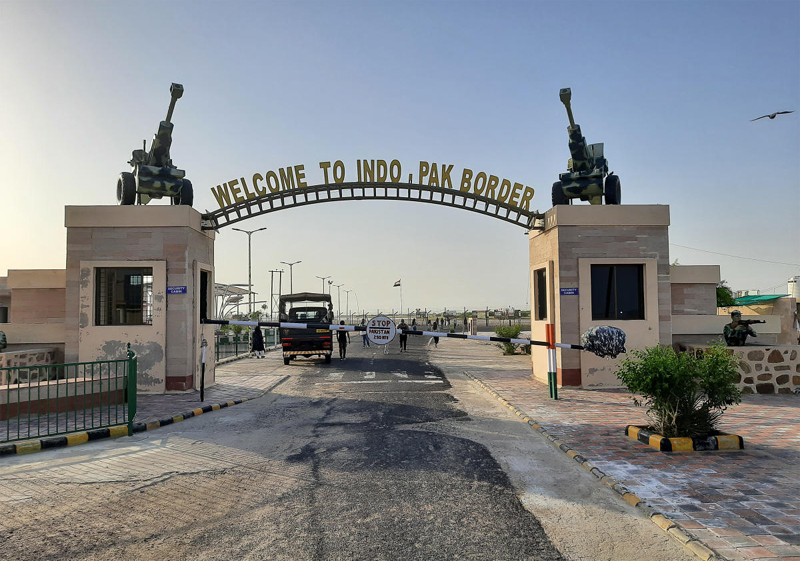During a meeting to review the implementation of the ‘Samridh Seema Yojana’, which focuses on filling infrastructural gaps in border areas of the UT, the Chief Secretary emphasised the importance of providing basic amenities in border areas. He stressed that these areas should have the same facilities as other villages and that people there should not have to migrate elsewhere to access such services. The officers have been urged to create a checklist of necessary amenities like schools, health centres, metalled roads, and quality power supply, among others, along with a review of rural institutions like panchayats, patwars, and anganwadi centres in these villages to ensure their performance is satisfactory.
The administration is working to promote border tourism, develop tourism-related infrastructure, provide skill development training, and generate livelihood opportunities for people living in border areas. Schemes to develop agriculture, horticulture, and allied activities, renewable energy facilities, and modern infrastructure such as smart classes in schools are top priorities now.
It is important to mention that life in the border villages in Jammu and Kashmir is not easy at all and that they are consistently facing various difficulties. Being located close to international borders, these villages often face security challenges due to cross-border tensions and infiltration attempts. The constant threat of border skirmishes and ceasefire violations can disrupt normal life and pose risks to the safety and well-being of the residents. Border villages lack basic infrastructure and amenities. Limited access to quality roads, inadequate healthcare facilities, insufficient educational institutions, and an inadequate power supply are some of the challenges faced by these communities. The absence of proper infrastructure hinders the overall development and quality of life for the residents. These border areas have limited economic activity and employment opportunities. The geographical location and security concerns can restrict trade and investment, resulting in limited job prospects for the local population. The net result is above-average unemployment and a lack of economic growth in these areas. Poor connectivity, both in terms of transportation and communication, is a significant challenge for border villages. Limited or unreliable road networks, a lack of public transportation, and inadequate access to communication networks can isolate these communities and hinder their social and economic development. Jammu and Kashmir are prone to natural disasters such as earthquakes, floods, and landslides. The geographical location and terrain make these villages more susceptible to such calamities, leading to loss of lives, damage to property, and disruption of essential services. Due to their remote location and security concerns, border villages face difficulties accessing Government services and welfare schemes. Frequent border skirmishes, shelling, and ceasefire violations create an atmosphere of fear and uncertainty. The constant threat to their lives and properties affects their mental well-being and overall quality of life. The problem is further compounded by the fact that these border residents often face displacement and loss of property during times of heightened security situations or armed conflicts. Evacuation orders and temporary relocations disrupt their daily lives, causing emotional distress and financial hardships.
Addressing these difficulties requires a comprehensive approach from the Government, including improving security measures, investing in infrastructure development, promoting economic opportunities, enhancing connectivity, and ensuring efficient delivery of essential services. This includes providing psychosocial support to help alleviate the hardships faced by the residents. The lack of administrative presence is being addressed by back-to-village programmes, online service delivery, and many outreach programmes that have improved the availability of essential resources and benefits for the residents. The Government is providing several opportunities for the youth living in border areas, such as easy access to loans, Government schemes for self-employment, and raising Border Battalions and Border Police Posts. There has been drastic improvement during recent years. The administration is trying its best to fill the gaps.
Trending Now
E-Paper


